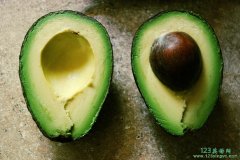高考英语阅读理解100篇 20-50篇(3)
编辑:高中作文网 阅读 次
C. from 21 years old to 39 years old D. from 29 years old to 38 years old
5. ______ caused the ten Thai construction workers’ death.
A. An unexpected accident B. High blood pressure
C. Heart trouble D. Something that was unknown
36、(1分)
The man sitting opposite Robert was the Financial Controller. Everybody called him “the FC” for short. He made all the decisions about money. Robert needed some more. That was why he had to see him. The two men did not get on very well. In fact, they had always disliked each other.
“Your request is out of the question,” the FC said. Robert had difficulty in controlling himself, but he managed somehow. He explained that he wanted the money in order to make more programmes.
“And why do you want to do that?” the FC asked sharply. Again, Robert almost lost his temper. “Because more and more people are listening to my department’s programmes. There’s great demand for them,” he answered.
The FC did not seem to believe him. But Robert had a report on the numbers of listeners to all EBC programmes. The FC became less confident (自信). Robert threw the report down on the table and told him to read it.
The FC looked at it in silence. The figures (数字) proved that he had been wrong, but he did not want to admit it. “Well,”he finally said, “I may have made a small mistake.”Robert noticed the word “may.” He got up to leave. But he had the feeling that he would get the money after all.
1. In the story the Financial Controller was a person who was in charge of
A. Robert’s department’s programmes. B. EBC programmes.
C. EBC money. D. both B and C.
2. “Your request is out of the question.”Here “out of the question”means
A. without any questionB. with some question. C. impossible. D. possible.
3. Robert decided to make more programmes because
A. he wanted to meet the needs of the listeners.
B. “the FC”disliked him
C. the members of his department wanted him to do so.
D. he wanted to show himself off.
4. Why were more and more people listening to Robert’s programmes?
A. Because he always lost his temper (脾气).
B. Because he disliked “the FC.”
C. Because the programmes were rich and to the taste of the listeners.
D. We don’t know.
5. Who do you think won the argument(争论)in the end?
A. The Financial Controller. B. Robert. C. Nobody. D. The listeners.
37、(1分)
Not many years ago, a wealthy and rather strange old man named Johnson lived alone in a village in the south of England. He had made a lot of money in trading with foreign countries. When he was seventy—five, he gave £ 12,000 to the www.123yingyu.com village school to buy land and equipment (设备) for a children’s playground.
As a result of his kindness, many people came to visit him. Among them was a newspaperman. During their talk, Johnson remarked that he was seventy-five and expected to live to be a hundred. The newspaperman asked him how he managed to be healthy at seventy—five. Johnson had a sense of humour (幽默). He liked whisky (威士忌酒) and drank some each day. “I have an injection (注射) in my neck each evening.”he told the newspaperman, thinking of his evening glass of whisky.
The newspaperman did not understand what Johnson meant. In his newspaper he reported that Johnson was seventy—five and had a daily injection in his neck. Within a week Johnson received thousands of letters from all over Britain, asking him for the secret of his daily injection.
1. Johnson became a rich man through
A. doing business. B. making whisky. C. cheating. D. buying and selling land.
2. The gift of money to the school suggests that Johnson
A. had no children. B. was a strange man.
C. was very fond of children. D. wanted people to know how rich he was.
3. Many people wrote to Johnson to find out
A. what kind of whisky he had. B. how to live longer.
C. how to become wealthy. D. in which part of the neck to have an injection.
4. The newspaperman
A. should have reported what Johnson had told him.
B. shouldn’t have asked Johnson what injection he had.
C. was eager to live a long life.
D. should have found out what Johnson really meant.
5. When Johnson said he had an injection in his neck each evening, he really meant that
A. he liked drinking a glass of whisky in the evening.
B. he needed an injection in the neck.
C. a daily injection in the evening would make him sleep well.
D. there was something wrong with his neck.
38、(1分)
“I’m very tired from working here,”said Jean to her friend Kate,” I’m on my feet from morning to night. For the first quarter of the day, I clean up the counter (柜台) and set the tables. For the next quarter, I help in the kitchen. For the second half of my workday, I take orders at the counters.”
“Kate, I wish I had your job,”Jean went on. “For four hours you just sit at the cash register (收款台) taking in money.”
“But I spend two more hours in the kitchen (厨房) than you do,”said Kate. “It’s tiring to cook over a hot stove. I don’t think you’d really want my job. In fact, I’d like your job.”
1. Both Jean and Kate probably work in a
A. hotel B. library C. lab D. shop
2. How long did they work every day?
A. eight hours B. twelve hours. C. Ten hours D. Nine hours
3. How long did Kate spend in the kitchen?
A. a quarter day. B. A half day. C. One-third day. D. Three-fourths day.
4. From this passage we can see that
A. they are both interested in their work. B. their work is neither tiring nor busy.
C. both of them are tired of their work. D. they’ve decided to give up their work.
5. Give a proper proverb (谚语) to Jean and Kate.
A. It’s never too late to learn.
B. It’s no use crying over spilt milk.
C. The grass is always greener on the other side.
D. One swallow(燕子) does not make a summer.
39、(1分)
In 1985 a French television company sent its reporters to the Paris Metro. They took cameras to see what passengers would do if they saw someone attached on the platform or in the trains. They acted out incidents. The incidents looked real but they were all done with the help of actors. However, very few people tried to help, and most passengers pretended not to notice. in one incident, a foreigner was attacked by three men. The attack was on a train which was quite full, and although one man tried to get the passengers to help, they all refused. It seems that such behaviour(行为) is not unusual, but the question is why? Is it a problem of big cities, or would the same thing happen anywhere? To discuss these questions, we have in the studio(演播室) Professor Wilson, who is an expert on the subject…
1. Who did the experiment?
A. A French television company. B. The Paris Metro.
C. The City Government of Paris. D. Professor Wilson.
2. What did the experiment try to find out?
A. How a foreigner was attacked on the train.
B. How passengers helped each other on the platform.
C. Passengers’ reactions towards incidents.
D. Actors’ performances during incidents.
3. What was the finding of the experiment?
A. Passengers helped a lot during incidents.
B. Very few foreigners were on the train.
C. Very few passengers tried to help during incidents.
D. Some people were good at acting on the train.
4. Who do the underlined words one man refer to?
A. One of the three men who attacked a foreigner.
B. One of the actors who took part in the experiment.
C. One of the passengers who were on the train.
D. One of the reporters who were sent to the Paris Metro.
40、(1分)
The clock struck eleven at night. The whole house was quiet. Everyone was in bed except me. Under the strong light, I looked sadly before me at a huge pile of that troublesome stuff(东西) they call “books”.
I was going to have my examination the next day. “When can I go to bed?” I asked myself. I didn’t answer, In fact I dared not.
The clock struck twelve.” Oh, dear!” I cried. “Ten more books to read before I can go to bed!” We pupils are the most wretched creatures in the world. Dad does not agree with me on this. He did not have to work so hard when he was a boy.
The clock struck one. I was quite desperate(绝望的) now. I forgot all I had learned. I was too tired to go on. I did the only thing I could. I prayed, “Oh, God, please help me pass the exam tomorrow. I do promise to work hard afterwards, Amen.” My eyes were so heavy that I could hardly open them A few minutes later, with my head on the desk, I fell asleep.
1. When the author was going over his lessons, all the others in the house were .
A. asleep B. outside C. working in bed D. quietly laughing at him
2. He underlined word wretched in Paragraph 3 probably means .
A. very happy B. disappointed C. very unhappy D. hopeful
3. Reviewing his lessons didn’t help him because .
A. it was too late at night
B. he was very tired
C. his eyes lids were so heavy that he couldn’t keep them open
D. he hadn’t studied hard before the examination
4. What do you suppose happened to the author?
A. He went to a church to pray again B. He passed the exam by sheer luck
C. He failed in the exam D. He was punished by his teacher
5. The best title for the passage would be .
A. The Night Before the Examination B. Working Far into the Night
C. A Slow Student D. Going Over My Lessons
41、(1分)
Douglas Grace talks about his ideal city of the future.
I see the city of the future in three zones(区域)---inner(内部), middle and outer. In the inner zone there will be no private(私人的) cars. Public transport(交通) will be free and there will only be ambulances(急救车), fire engines, taxis and police cars. This inner zone will be the residential(住宅的) and recreational(娱乐的) area of the city. People will live there and go out to enjoy themselves----to cinemas and restaurants. There will be parks and open spaces, trees and lakes, schools and universities. This way, when people are at home, they can go out easily and safely.
Just outside the inner zone there will be big car parks for all private cars.
The banks and most of the shops and hospitals will be in the middle zone. These are things that people don’t need every day.
All the factories and offices will be in the outer zone. People will travel out of the center to work, and back to the center in the evenings. The inner zone will be cleaner and better to live in and there will be more space for industry on the outside.
This is my ideal city of the future--- a very beautiful place! But I don’t really think things will ever be like that!
1. Where will people live and go out to enjoy themselves?
A. In the middle zone. B. In the inner zone.
C. In the outer zone. D. In the inner and middle zone.
2. Where will big car parks be?
A. Just outside the middle zone. B. Just inside the middle zone.
C. Just outside the inner zone. D. Just inside the inner zone.
3. What will be in the middle zone?
A. The banks, hospitals and schools.
B. The banks, hospitals and police stations.
C. The banks, schools and car parks.
D. The banks, hospital and most of the shops.
4. Where will the factories and offices be?
A. In the outer zone. B. In the middle zone.
C. In the inner zone. D. In the middle and inner zone.
5. Douglas Grace is probably .
A. a painter B. a builder C. a town planner D. an officer
6. Write these words in the zone where you will find them in Douglas Grace’s city
A==the inner zone B==outside the inner zone
C==the middle zone D==the outer zone
Hospital Office Bank Lake Cinema
School Park Car park Shops Factory
42、(1分)
Baths and bothing have long been considered of medical importance to man. In Greece there are the ruins(废墟) of a water system(系统) for baths built over 3,000 years ago. The Romans had warm public baths. In some baths, as many 3,000 persons could bathe at the same time.
Treating disease by taking bathing has been popular for centuries. Modern medical bathing first became popular in Europe and by the late 1700’s has also become popular in the United States.
For many years frequent(经常的) bathing was believed to be bad for one’s health. Ordinary bathing just to keep clean was avoided(避免), and perfume was often used to cover up body smells!
By the 1700’s doctors began to say that soap and water were good for health. They believed that it was good for people to be clean. Slowly, people began to bathe more frequently. During the Victorian Age of the late 19th century, taking a bath on Saturday night became common.
In the United States ordinary bathing was slow to become popular. During the 18th and early 19th centuries, many Americans were know as “The Great Unwashed!” In one American city , for example, a person was only allowed to take a bathe every thirty days! That was a law!



